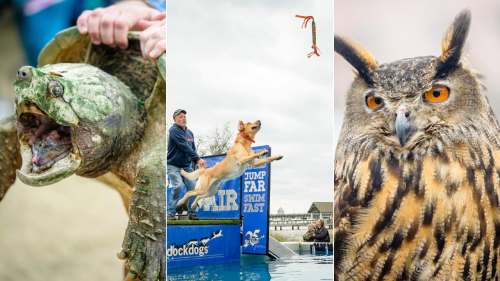Today is National Black Cat Day, and while the only dark-coated felines we see in Charleston are typically domestic cats, we do have bobcats. 🐈
The bobcat, officially called lynx rufus and sometimes called wildcat, is a wild, carnivorous feline that can weigh anywhere between 11 and 30 pounds – usually twice as large as the average house cat. This species, named after its bobbed tail, lives on a diet typically consisting of rabbits, birds, mice, squirrels + other small game.
Bobcats are found in almost all U.S. states, and in South Carolina they are most abundant in the Lowcountry.
The most prevalent area of healthy, monitored bobcat populations in Charleston is on Kiawah Island. Due to its dense forests, bobcats are commonly spotted roaming the island typically during the hours from dusk to dawn. These felines are shy + keep their distance, posing little threat to humans.
Bobcats are vital to the island’s ecosystem, and research has been conducted to better understand their habitat needs + requirements.
Recently, town officials have found that the island’s bobcat population is steadily declining after some were found dead from consumption of rat poison. Once, there were as many as 35 bobcats roaming the island, but now there are presumably less than 10. According to Kiawah Wildlife Biologist Jim Jordan, the decline is directly linked to an increase of deer, as bobcats prey on fawns.
In order to protect this species + keep the ecosystem in order, Kiawah Island is encouraging its residents to agree to the “Bobcat Guardian Program”, which includes a pledge to refrain from the use of certain damaging pesticides. Additionally, the town announced “Save Kiawah Bobcats Week” earlier this month (Oct. 11-17), and plan to make it an annual awareness week.
Quiz











